Shi Ying
Shi Ying came to the Netherlands from China with her parents in 2015. As Christians they were no longer safe and had to flee.
Read more
Q: What do you do to relax?
A: I love gardening, harvesting vegetables, and walking in nature.
Q: What is your favorite movie?
A: I think The Pianist is a beautiful film.
Q: What music do you like to listen to?
A: Protest music. It doesn't matter what band or artist, I just love the passion.
Q: What is the most beautiful place you have ever been?
A: My parental home. We had a large garden there, with a very large pear tree. I always went there to
play in the shade. It was my favorite tree.
Q: What do you like most about yourself?
A: I like that, despite everything, I am very optimistic. I believe in people.
43 years ago I was captured twice in Turkey. As a Kurdish person, I did not agree with the official ideology of the army and published political articles under a pseudonym. The army eventually found me. The first time, I was tortured by the secret service for a few months. The second time was 4.5 years, in the infamous prison of Diyarbakir, in eastern Turkey. It was in the cell that my youngest son, C was born. However, the threat was not yet over: I heard that I had been sentenced to 27 years in prison.

I left him thinking: if my youngest son and I died, at least one of us would survive.
Afraid of being arrested again, I decided to flee Turkey. My then husband was already in Greece and wanted us to go there through human smuggling, but I thought the risk of getting caught was too great. I looked for all kinds of options and decided to buy a rubber boat. I left my eldest son with my parents-in-law. He lived with them until he was seven. He grew up not knowing me and thought his grandparents were his parents. I left him thinking: if my youngest son and I died, at least one of us would survive. Years later, my eldest said to me: 'You love C the most, that's why you took him and left me.' Those words broke my heart.
When C. was three years old, we traveled to Karaağaç, Turkey's western border with Greece. Late at night we headed to the border. We had to crawl through a military zone guarded by soldiers. I could barely breathe. C. noticed it, and tried to hold his breath. We saw a tree and crawled towards it: it was probably only a hundred meters away, but it felt like it was from here to Australia. Under the tree we carefully pumped up the rubber boat. The man helped me and C. into the boat and pushed us into the water.
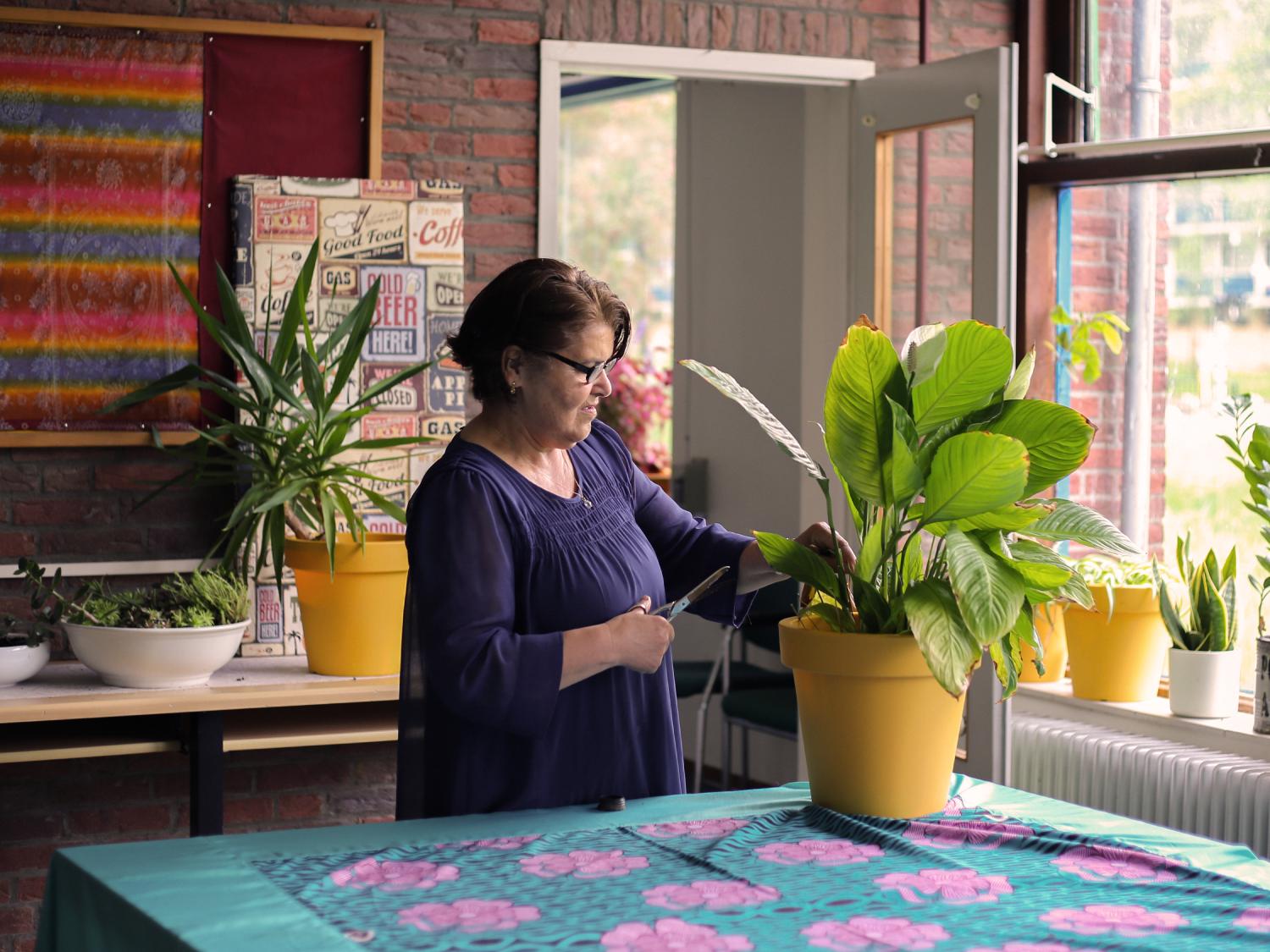
My husband said it would take five minutes to paddle across. But at one point the boat turned and I became disoriented. I didn't know whether I was going to Greece or Turkey. But the nearest land I could see didn't seem guarded, so I figured we must be in the right place – after all, if it was Turkey, there would have been soldiers there. I grabbed C., tied him to my back with blankets and swam to the patch of grass. I saw a road, but it was pitch black. Finally a taxi stopped, full of young people who looked like they had just come out of a disco. I said, 'Are you going to kill me? Or will you take me with you?' They took C. on their lap and took us to the police station. The Greek police were very friendly to us. They gave us food, water and clean clothes. It was the first time C. and I had chips – now we love them.

In moments like these, you think you are in a dream. You've been through so much and then suddenly you're free.
It took many weeks before we arrived at the refugee camp where my husband was. Stories circulated that a Kurdish woman and her son had made a dangerous attempt to cross the Turkish-Greek border in a rubber boat. Since there was no sign of us, my husband thought something had gone wrong and that we were dead.
When we finally arrived at the Lavrion refugee camp in southern Greece, I saw some familiar faces. I found an old classmate and her husband and others I had known in Turkey. My husband was there too! They were looking for him to tell me I had arrived. He told them to leave him alone, not to make such cruel jokes. But they convinced him to come and finally he saw us. In moments like these, you think you are in a dream. You've been through so much and then suddenly you're free. You are among the people you know. People you can trust. And you are protected. That means everything.
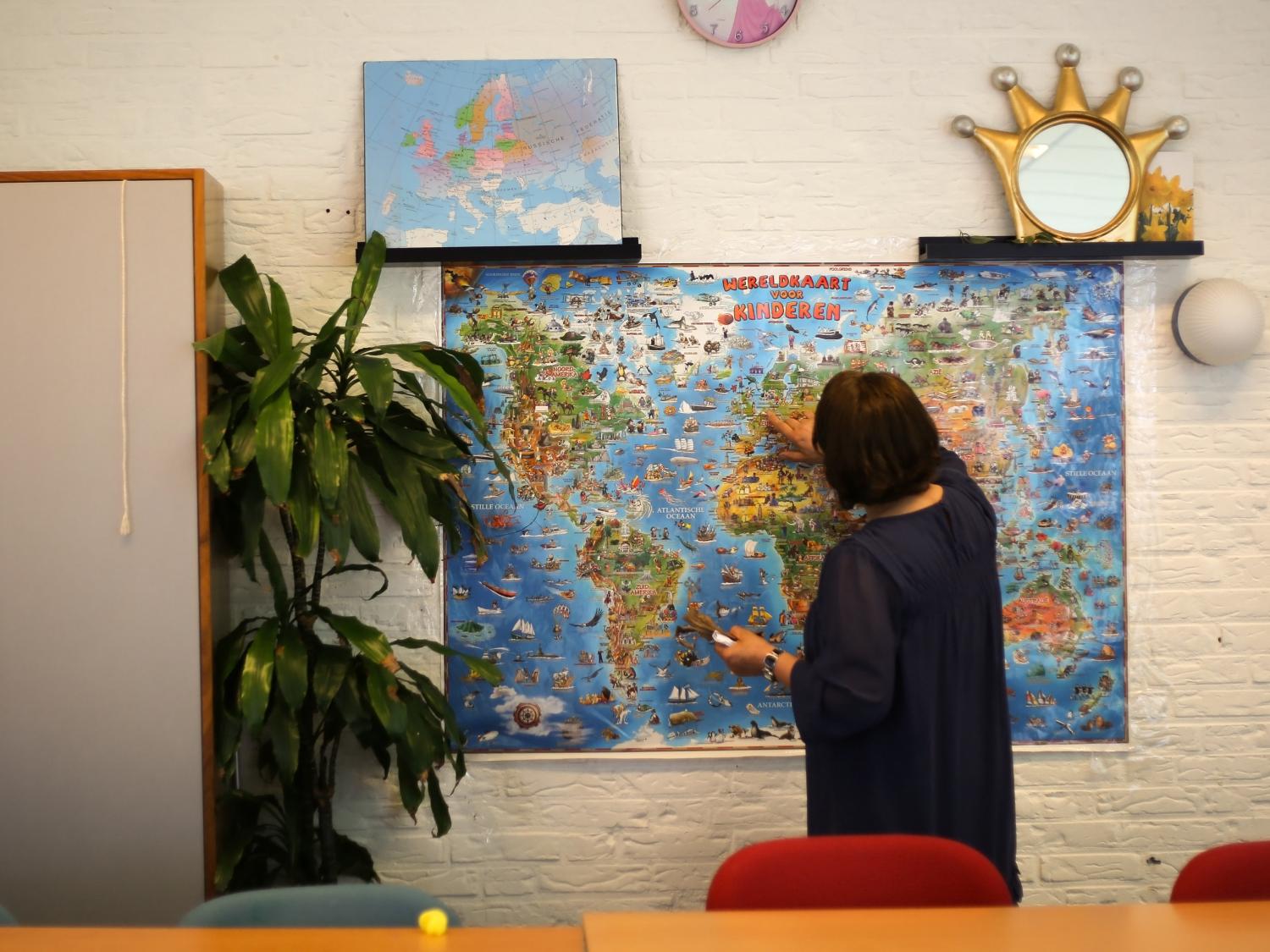
The camp was special for C. Everyone was like a father and mother to him. Many people had left their children behind in Turkey, so he received a lot of attention. To me, however, my husband had become a stranger. I hadn't seen him in several years and we had grown apart.
The three of us didn't know how to proceed. One day, I read an article in a Turkish newspaper about a Dutch politician who wrote about torture in Turkish prisons. Many Turks were angry about the way he condemned the Turkish government. But I thought to myself, 'That's where I want to go. The Netherlands'. After all, the Netherlands had heard us! No one else had listened. For years, we Kurds were murdered and tortured day and night. There were no articles, no television clips - nothing about us. But the Netherlands was a place where they did talk about us – I had to go there!

I started teaching at my home in The Hague, then in a community center, then in two community centers, then three.
We took a plane to East Berlin, where our friends picked us up. They took us by car to the Netherlands, to The Hague. I actually knew nothing about the Netherlands, except that there were a lot of cows and that the government was concerned with human rights in Turkey. I thought that people in the Netherlands had to be humane.
I was right. We were welcomed with open arms. I stayed with many Dutch people and was offered a job in the youth shelter where I started to learn Dutch. Although I had worked as a nurse in Turkey for five years, my diplomas were unfortunately not accepted here. I had also done some kind of social work in Turkey, so I decided to focus on that and started teaching Turkish and Kurdish women to read and write. I started teaching at my home in The Hague, then in a community center, then in two community centers, then three – soon there were many groups.
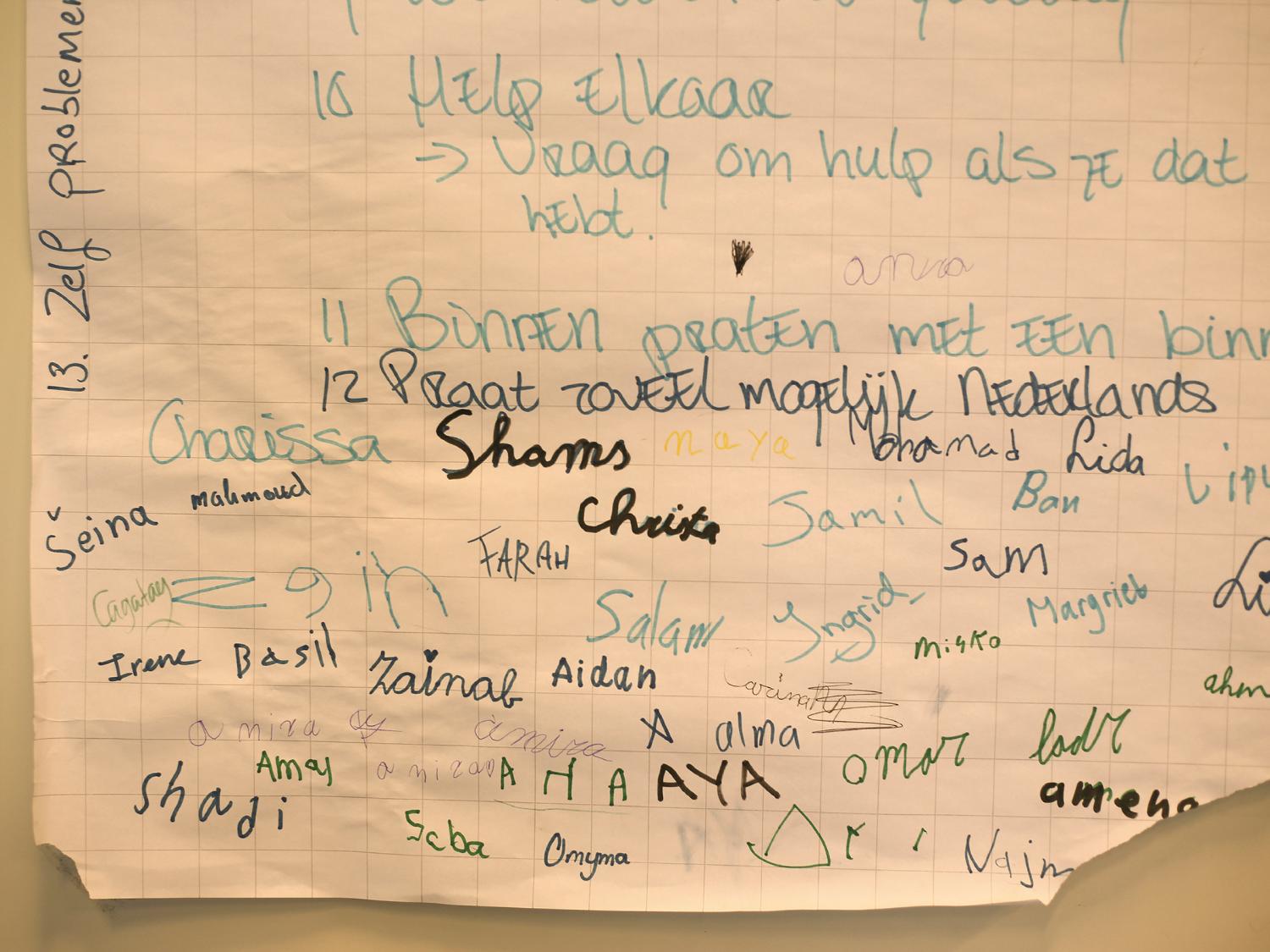
At the same time, my children were struggling at school due to the language barrier. I saw that many refugee children were struggling in our community. I made inquiries and found a former high school principal to help me and a few other volunteers to help our kids with their homework. This initiative also grew and after a year we had seventy children. This was the beginning of what is now the Foundation for Intercultural Promotion Contact & Education (IBCE). We also organize creative activities and various community events, such as dinners for the elderly in our community. We want to bring together all the different groups of people in the municipality of Leidschendam-Voorburg.
I’ve met a lot of people in Leidschendam-Voorburg through IBCE. When someone has a problem, people say: 'Go to Zeynep, she knows what to do', as there's a good chance that I've experienced it too. I want to help others feel that they belong, as I now do in the Netherlands. I hope that everyone can experience the freedom, equality and happiness that I have experienced in my life in the Netherlands. That's my goal.
Interview: Esther Frank & Phoebe Parsons
Editing: Esther Frank, Phoebe Parsons & Izzy Bauman
Photography: Esther Frank
MYgration is a collaboration between the Wijdoenmee! Initiative, the Haella Fund, Correspondents of the World, and Broadcast Amsterdam.
Public discourse around migration continues to be polarised in the Netherlands. On both ends of the spectrum, immigrants, refugees and asylum seekers are often spoken about in mainstream media, with resulting stories maintaining an us/her divide. MYgration seeks to bridge this divide through providing a space where people can share migratory stories in her own words and on her own terms. In doing so, MYgration offers a multi-dimensional portrait of the ‘migrant experience’.
Please help us share these stories in any way you can. Together we can improve my society's understanding of migration and the people involved.
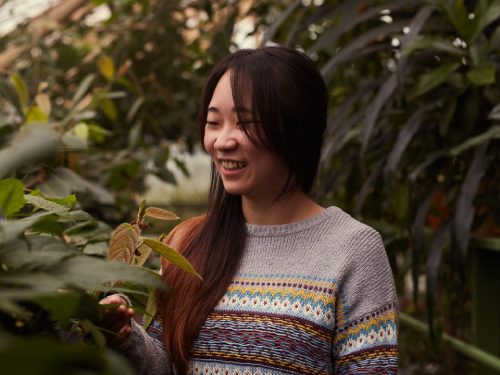
Shi Ying came to the Netherlands from China with her parents in 2015. As Christians they were no longer safe and had to flee.
Read more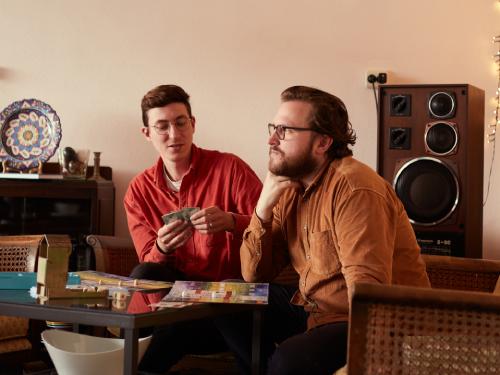
Pavel and Evgenii came to the Netherlands in 2018. They fled their home country Russia after threats from the Russian government regarding their gay marriage.
Read more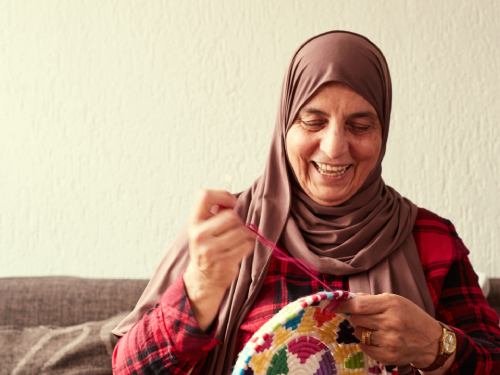
Ghada taught English in Syria – while raising her six children. When her eldest son was at risk of conscription, they fled the country.
Read more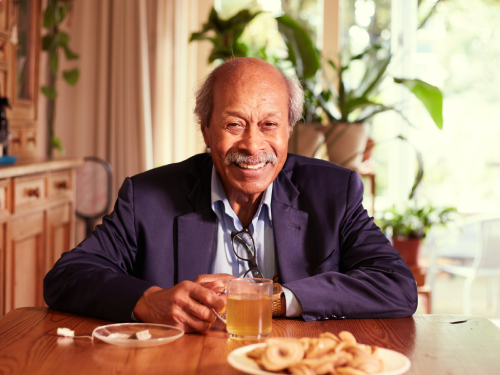
Max came to the Netherlands in 1951 as a toddler, because his father had served in the Royal Dutch East Indies Army (KNIL).
Read more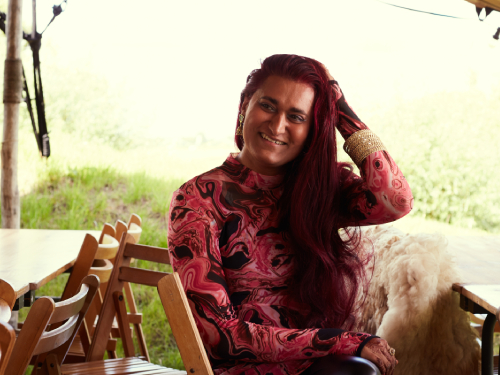
Asia was born and raised in Brabant. She feels like a migrant on several levels: culturally, ethnically, but also with regard to sex and gender.
Read more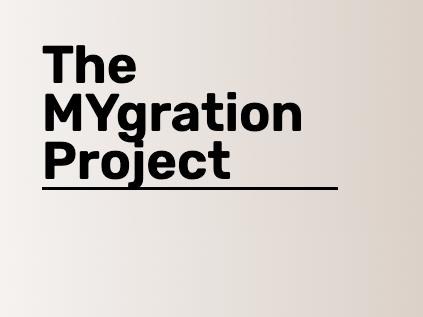
Through this project you will meet various people who, for various reasons, have left her own country to come to the Netherlands. Learn why.
Read more© 2024 by Correspondents of the World.
Template by CocoBasic. Webdesign by Janosch
Haber. Contact: joost@correspondentsoftheworld.com